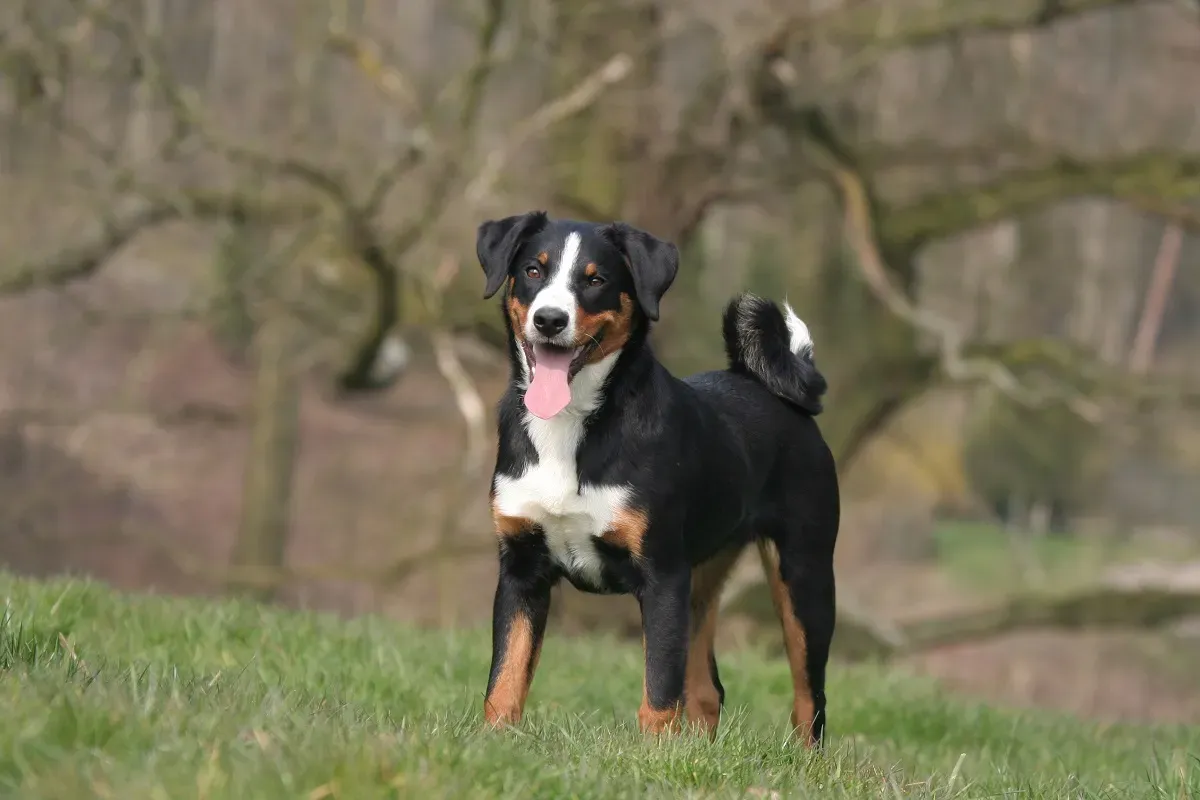
Basenji
Heena
May 27, 2025

The Basenji is a fascinating and ancient breed, often called the “barkless dog” due to its unusual vocalizations. Originating from Central Africa, where it was used for hunting, the Basenji is now cherished worldwide—including in the UK and USA—for its intelligence, elegance, and independent nature.
This breed is distinct not only in its behavior but also in its appearance: sleek, graceful, and compact, the Basenji combines agility with a unique personality that requires understanding and commitment from owners.
Breed Overview
- Breed Name: Basenji
- Group: Hound (AKC & UK Kennel Club)
- Origin: Central Africa (Congo region)
- Height: 16–17 inches (41–43 cm)
- Weight: 22–24 lbs (10–11 kg)
- Life Expectancy: 12–16 years
- Temperament: Intelligent, alert, independent, affectionate
Breed Colors & Markings
Basenjis have short, fine coats that come in a few standard colors:
- Red (Chestnut) and White
- Black and White
- Tricolor: Black, chestnut, and white
- Brindle and White
Distinctive white markings usually appear on the feet, chest, and tail tip. Their coat is sleek and shiny, requiring minimal grooming.
Temperament & Personality
Basenjis are well known for their:
- Intelligence and curiosity: They are clever problem-solvers and highly inquisitive
- Independent nature: Unlike many companion dogs, Basenjis think for themselves and can be stubborn
- Affectionate but reserved: They bond closely with their families but may be wary of strangers
- Quiet communication: They don’t bark but produce unique yodel-like sounds called “baroos”
- High energy: Require plenty of exercise and mental stimulation
Their combination of independence and affection makes them a rewarding pet for experienced dog owners.
Communication & Intelligence
Basenjis communicate uniquely:
- “Baroo” sound: A yodel-like noise instead of a traditional bark
- Body language: Use tail curls, ear positioning, and facial expressions to express moods
- High intelligence: Quick learners but may ignore commands if uninterested
- Social cues: Often reserved with strangers but loyal to family
Training requires patience, creativity, and consistency.
Health & Lifespan
Basenjis are generally healthy but prone to specific issues:
- Fanconi syndrome: A genetic kidney disorder needing early detection
- Progressive Retinal Atrophy (PRA): Can cause vision loss
- Hip dysplasia: Less common but possible
- Hypothyroidism: A thyroid function disorder
- Intestinal issues: Sensitive stomachs in some dogs
Regular vet checkups and genetic testing are recommended. Lifespan typically ranges from 12–16 years.
Grooming Needs
Basenjis are low-maintenance dogs:
- Coat care: Weekly brushing to remove loose hairs and maintain shine
- Bathing: Only when necessary; they groom themselves like cats
- Ear cleaning: Regular checks and cleaning to prevent infections
- Nail trimming: Every few weeks
- Dental care: Regular brushing is important to prevent dental disease
Their short coat makes grooming quick and simple.
Exercise Requirements
Basenjis are energetic and require:
- Daily vigorous exercise: At least 60 minutes including running and play
- Mental stimulation: Puzzle toys, scent games, and training activities
- Secure environment: They are excellent escape artists and should be in fenced areas or on a leash
- Avoid boredom: Without enough activity, they may become destructive
Their high energy makes them better suited to active households.
Training & Socialisation
Training Basenjis requires a thoughtful approach:
- Early socialisation: Introduce to various people, animals, and environments
- Positive reinforcement: Reward-based training with treats and praise
- Short, engaging sessions: To keep their attention
- Patience and consistency: Avoid harsh methods—Basenjis respond poorly to punishment
- Leash training: Essential due to their strong prey drive and escape tendencies
Experienced dog owners tend to have the best success with this breed.
Nutrition & Diet
Basenjis benefit from:
- High-quality, balanced dog food: Designed for active medium-sized breeds
- Portion control: To maintain healthy weight and prevent obesity
- Regular feeding schedule: Usually two meals a day
- Fresh water: Always available
- Avoid human food: Some foods can be toxic or upset their sensitive stomachs
Consult your vet for breed-specific dietary recommendations.
What to Expect as an Owner
Owning a Basenji means:
- Welcoming an intelligent, independent, and affectionate companion
- Providing plenty of physical and mental exercise daily
- Committing to early, consistent training and socialisation
- Ensuring a secure home environment due to their escape artistry
- Enjoying a unique dog with a quiet but expressive personality
Basenjis are best suited to active, experienced owners who understand their special needs.
Is the Basenji Right for You?
If you want a clever, energetic, and affectionate dog with a distinctive barkless voice, the Basenji is an excellent choice for homes in the UK or USA. They thrive with owners who can offer structure, activity, and lots of mental engagement.
Final Thoughts
The Basenji is a truly unique breed combining elegance, independence, and devotion. With proper care, exercise, and training, they make a fascinating and loving companion for the right family or individual.

